MercoPress. South Atlantic News Agency
Environment
-
Friday, September 17th 2021 - 09:57 UTC
British Ambassador at Montevideo's Expo Prado: Falklands stand in the show is aligned with UK theme, climate change

For the eighth year, the United Kingdom participated in Montevideo's Expo Prado Show, annual international livestock and agricultural industry exhibition where the largest productive sector of the Uruguayan economy shows its muscle to the thousands of visitors and private and public exhibitors who turn up for each edition. This year is the second time that Ambassador Faye O'Connor has appeared at the opening of her country's pavilion, which will also house, once again, a Falkland Islands themed stand promoting industry and tourism.
-
Thursday, September 16th 2021 - 09:15 UTC
International Day for Protection of the Ozone Layer, 16 September

The ozone layer, a fragile shield of gas, protects the Earth from the harmful portion of the rays of the sun, thus helping preserve life on the planet. The phase-out of controlled uses of ozone-depleting substances and the related reductions have not only helped protect the ozone layer for this and future generations but have also contributed significantly to global efforts to address climate change; furthermore, it has protected human health and ecosystems by limiting the harmful ultraviolet radiation from reaching the Earth.
-
Wednesday, September 15th 2021 - 21:22 UTC
New Research and Monitoring Plan for South Georgia & South Sandwich Islands Marine Protected Area
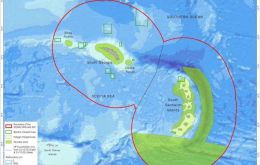
A new Research and Monitoring Plan is being launched today to help support the management of South Georgia and the South Sandwich Islands and Marine Protection Area, MPA, points out the SGSSI Newsletter.
-
Wednesday, September 8th 2021 - 09:42 UTC
New earthquake hits Mexico near Acapulco but floods kill more in Tula
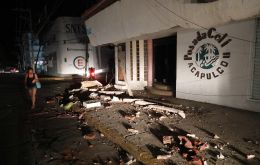
Exactly four years after Mexico was shaken by the second most intense earthquake in its history, a 7.1 magnitude tremor with an epicentre 11 kilometres southeast of Acapulco hit the country again Tuesday.
-
Wednesday, September 8th 2021 - 08:08 UTC
Europe experienced the hottest summer, EU scientists
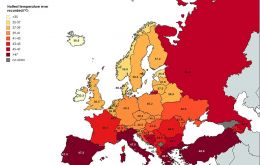
Europe experienced its hottest summer so far, a slightly higher than the previous seasons extending from June to August, according to scientists from the European Union.
-
Tuesday, September 7th 2021 - 09:40 UTC
Macron praises Piñera for the political changes; pledges full support to upgrade the Chile/EU trade accord

France praised Chile for its current constitutional process and pledged support for negotiations to upgrade the European Union/Chile trade agreement. President Sebastian Piñera on a tour of European countries was hosted on Monday by his French peer Emmanuel Macron who during a media conference at the Elysée Palace underlined the significance of the political and constitutional transformations taking place in Chile.
-
Tuesday, September 7th 2021 - 09:09 UTC
Falkland Islands Government launches flagship Environment Strategy 2021/2040
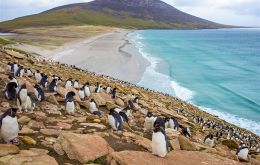
The Falkland Islands Government launched on Monday its flagship Environment Strategy 2021 – 2040, which recognises the central and universal role that the natural environment plays in the sustainable development of our health and wellbeing, our economy and our nation as a whole.
-
Friday, September 3rd 2021 - 09:30 UTC
One third of Latin America, Caribbean forests under threat, study finds
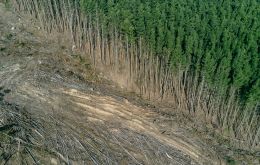
According to the Botanic Gardens Conservation International, “World Forestry Report” published Wednesday, one-third of the forest wealth in Latin America and the Caribbean is under threat of extinction.
-
Friday, September 3rd 2021 - 09:00 UTC
Hurricane Ida hits Northeast US, killing dozens of people and causing havoc
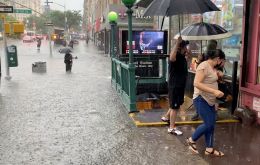
Hurricane Ida Thursday hit the entire Northeast region in the United States, killing dozens of people and flooding streets, causing severe damage to the local transport services.
-
Friday, September 3rd 2021 - 08:04 UTC
South Georgia stamp release to celebrate the return of whales to the recovered ecosystem
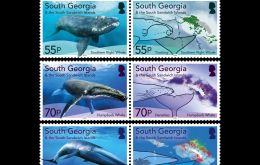
The Government of South Georgia & the South Sandwich Islands announced the release of a new stamp set to celebrate the recovering ecosystem of the Territory and in particular whales, according to the latest edition of the South Georgia and South Sandwich Islands Government Newsletter.
